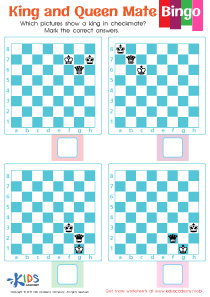Cognitive Development Normal Chess Worksheets for Ages 4-6
4 filtered results
-
From - To
Unlock your child's potential with our engaging Cognitive Development Normal Chess Worksheets for ages 4-6! Designed to promote critical thinking and problem-solving skills, these worksheets introduce young learners to the strategic world of chess. Each activity combines fun and education, helping children improve their attention, memory, and logic while enhancing their understanding of essential concepts. Perfect for parents and teachers seeking innovative resources, our worksheets are easily printable and adaptable for various learning styles. Spark your preschooler's love for learning through chess and watch them grow with confidence and creativity—one move at a time! Start exploring today for a bright future in cognitive skills!
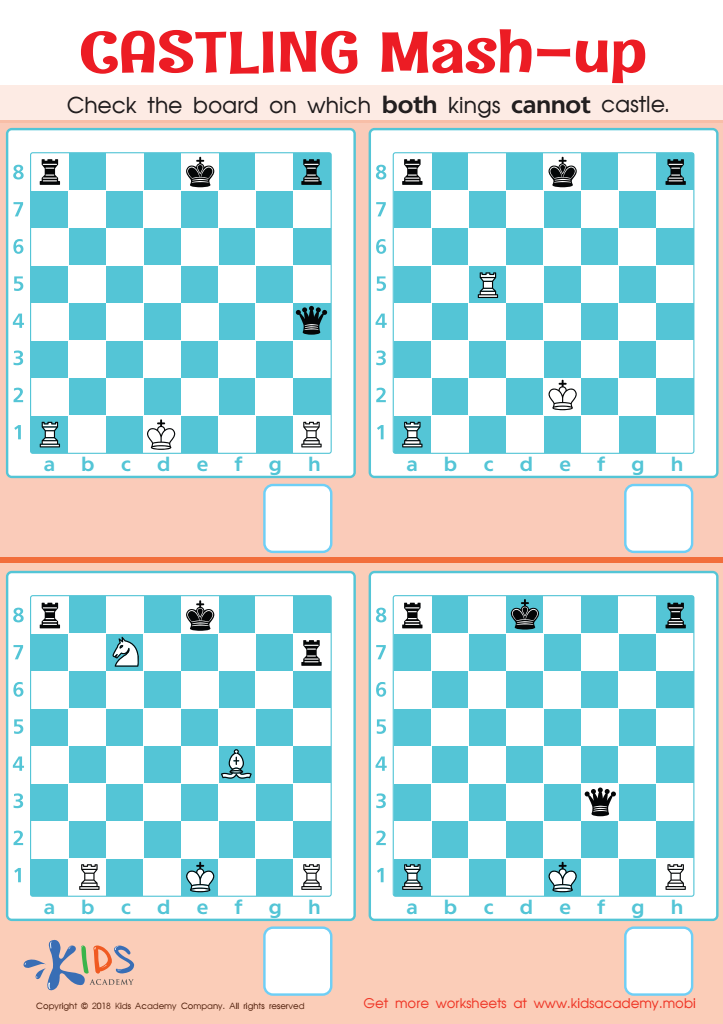

Castling Mash–up Worksheet
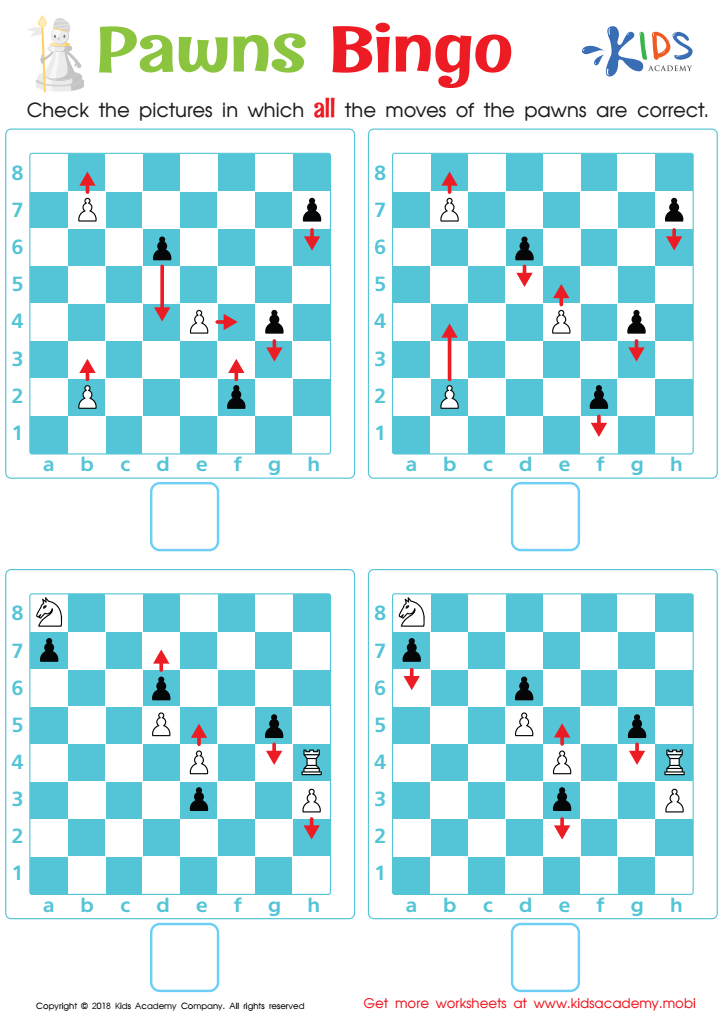

Pawns Bingo Worksheet
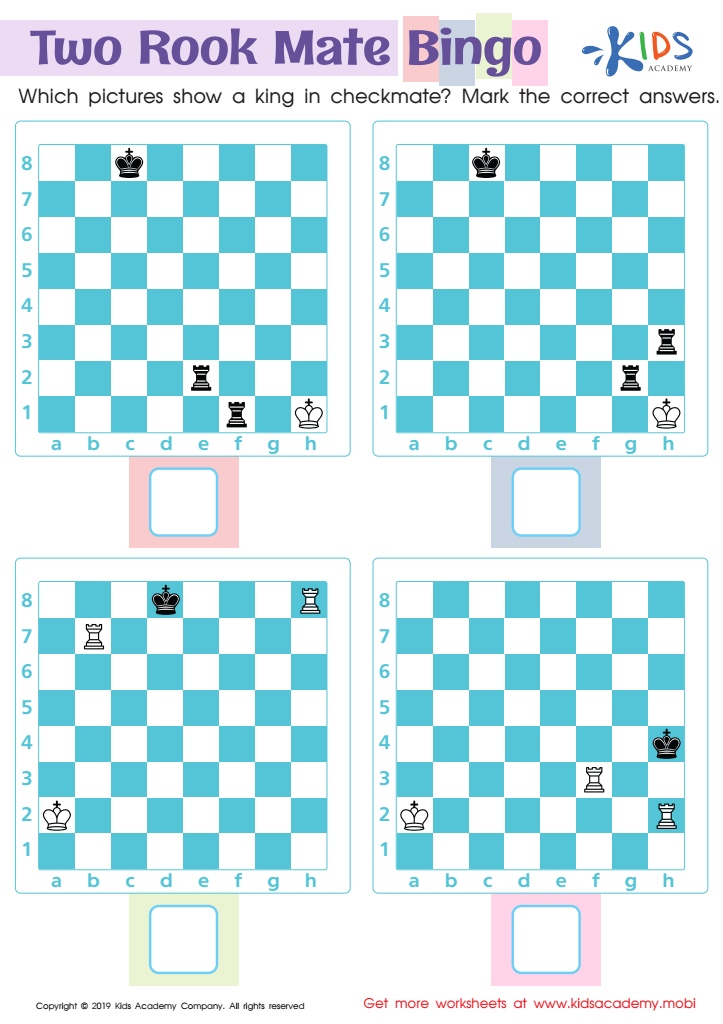

Two Rook Bingo Worksheet
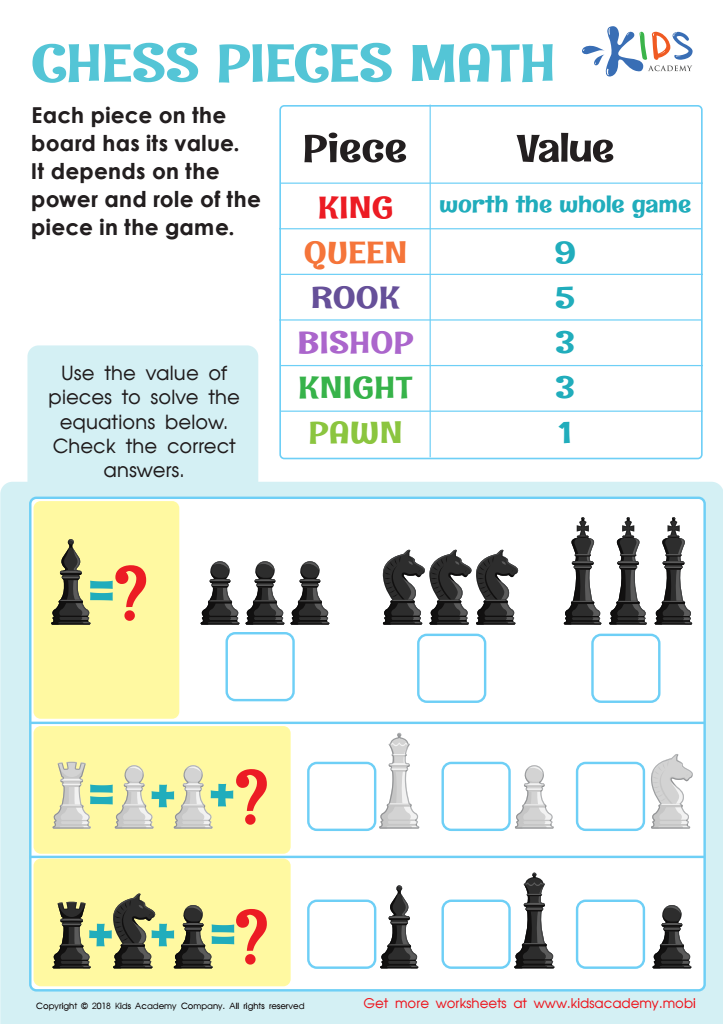

Chess Pieces Math Worksheet
Cognitive development during early childhood is critical for laying the foundation for future learning and problem-solving skills. Introducing children aged 4-6 to chess can significantly enhance their cognitive abilities in several ways. Firstly, chess promotes critical thinking and strategic planning, as children learn to anticipate their opponent's moves and plan several steps ahead. This enhances their problem-solving skills and encourages them to think logically.
Moreover, chess engages children’s memory, as they memorize various pieces, their movements, and established strategies. This cognitive exercise improves focus and concentration, traits essential for academic success. Additionally, playing chess fosters creativity; children learn to think outside the box and imagine multiple outcomes.
By encouraging chess play, parents and teachers create opportunities for social interaction, teamwork, and sportsmanship. Children learn to deal with winning and losing gracefully, teaching resilience and emotional regulation.
Furthermore, integrating chess into early education can enhance language skills through discussions about the game, improving both vocabulary and communication abilities. Ultimately, fostering cognitive development through chess not only enriches children's intellectual growth but also prepares them for the complex decision-making required in real-life situations. Investing in such activities can have long-term benefits for a child's overall development.

 Assign to My Students
Assign to My Students











